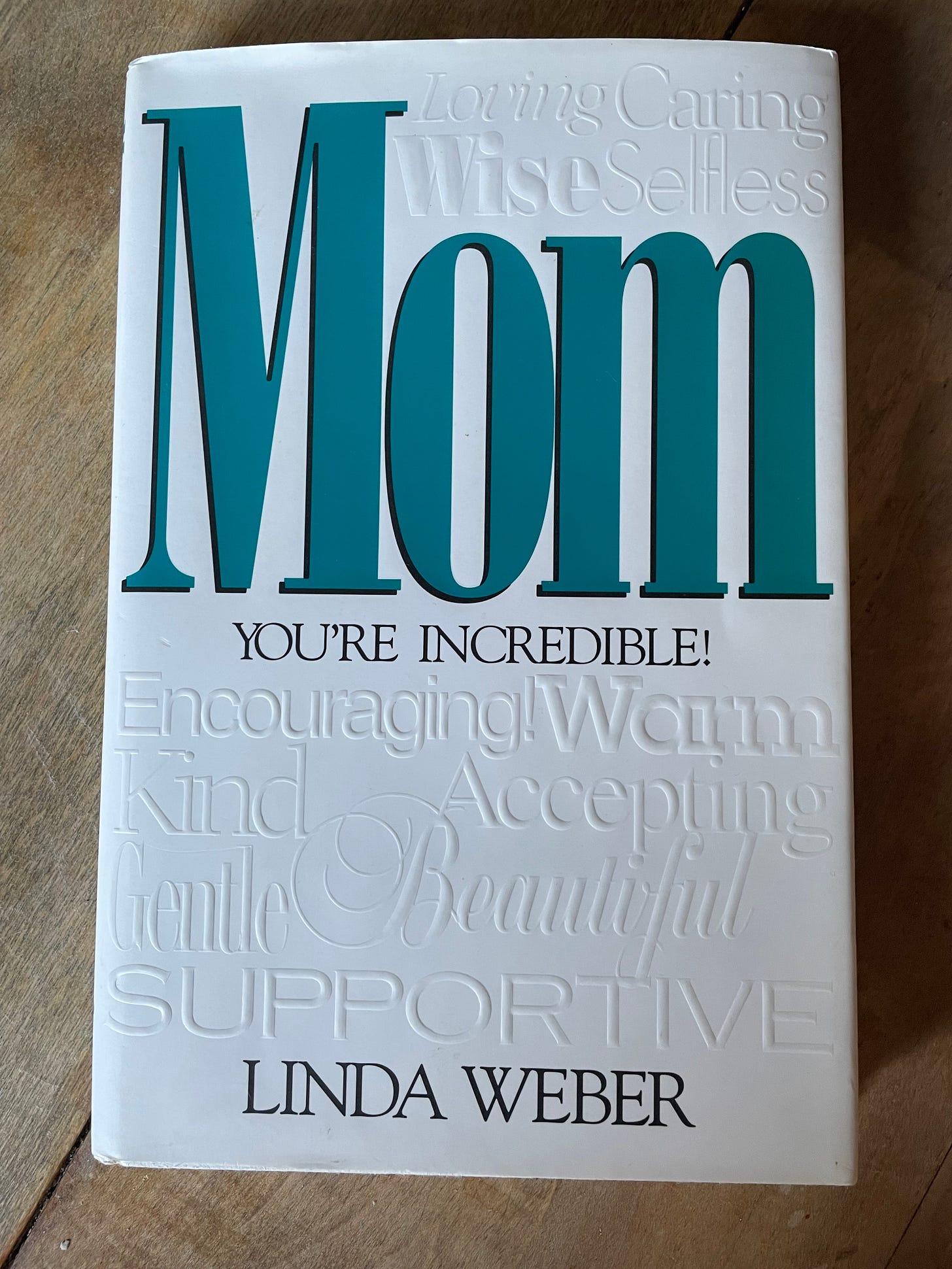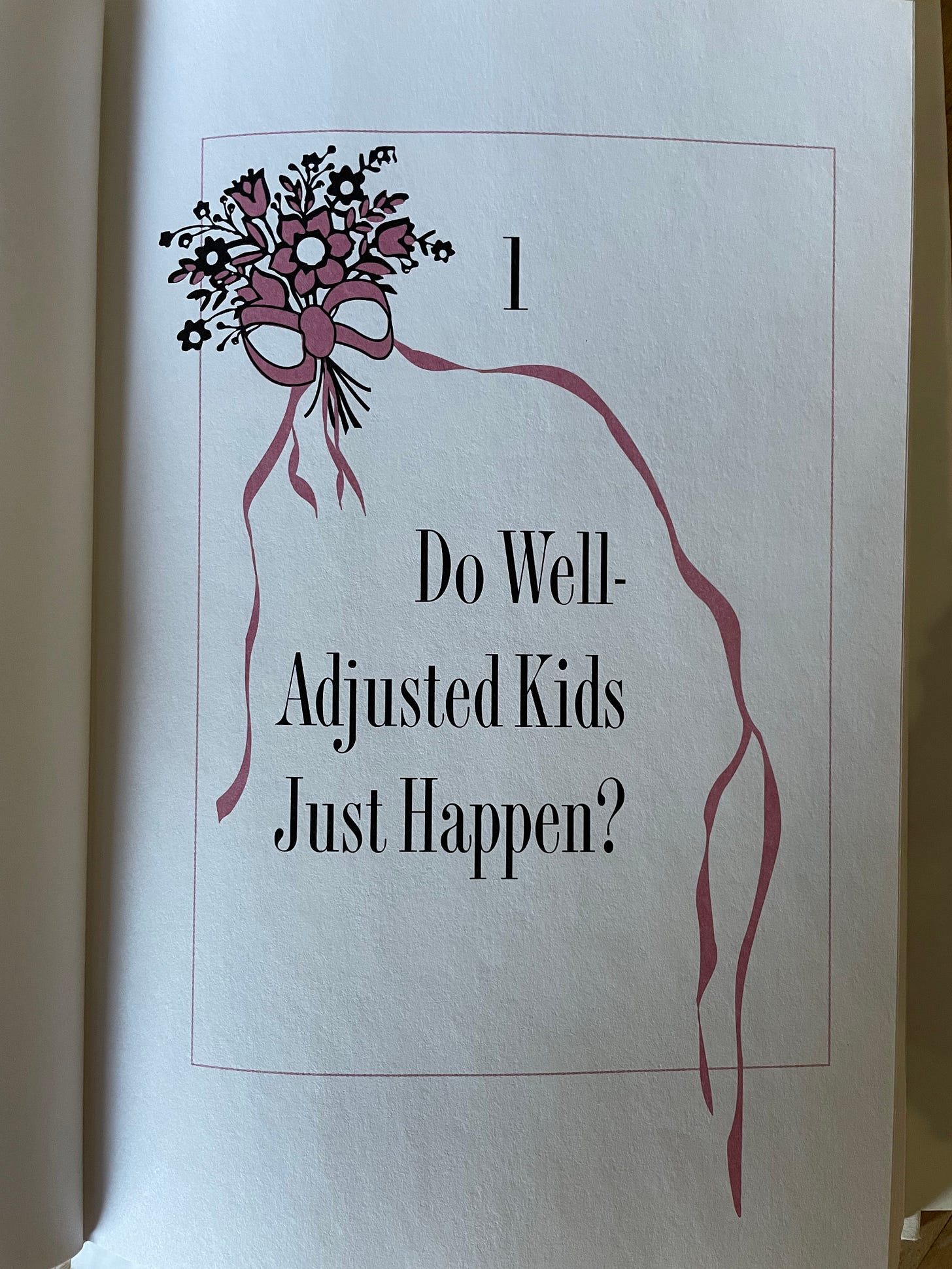Mothers Day Reflections
Mother's Day is important to Religious Authoritarian Parents. Why is that?
STRONGWILLED is a reader-supported publication. This week’s post is a shorter piece meant to spur reflection and discussion. We will be back next week with Chapter 6 (which contrasts Religious Authoritarian Parenting methods with emotionally intelligent practices). Thank you to everyone for liking, sharing, and subscribing to this project — we couldn’t do this without you!

Croissant sandwiches, Proverbs 31 readings, single carnations passed out to all the mother’s during a church service. For many of us who grew up in conservative, patriarchal churches, the Mother’s Day service was an annual event. So too were the expectations to be thankful for all the sacrifices mothers made for their children, both when they were in the trenches of early motherhood and far beyond.
Focus on the Family, Dr. James Dobson, and plenty of patriarchal churches have all declared themselves to be the savior of the (white, heteronormative) family. But it’s worth noticing that Mother’s Day in particular is a hallowed day in Religious Authoritarian frameworks, because mother’s play a vital role in the creation of children who will continue on the hierarchical legacy of their parents.
In later chapters we will be discussing why gender norms and gender roles are always essential to authoritarianism. For today’s short reflection post, we wanted to highlight the pressures adult children can face when they grow up in homes with a strict and severe hierarchy of authority that falls along gendered norms.
Bill Gothard’s umbrella illustration is now infamous, and while not everyone grew up with the gender hierarchy so explicit in their homes, this is the underlying belief of almost all religious authoritarian parents.
Christ is the head of the church and the head of the man. The husband is the head of the wife. The wife is the head of the housework, and also the children. The implicit and explicit promises made to women in these contexts is that if they submit and obey their husbands (who are obeying Christ) then their children will submit and obey them. But only, RAP authors are quick to point out, if they raise their children in a godly manner and invest every part of themselves to being a mother and a wife.
In the 1994 Focus on the Family book Mom, You’re Incredible! Linda Weber writes “JUST a mother? Hardly. Being a mom is the most strategic , pivotal role in our society. It’s a calling . . . a responsibility . . . an honor.” She goes on to write chapters on how women should try their best to not work outside the home, and that if they invest everything into being a mother and wife then they will see the fruit of children who honor and obey their parents (and their god) for life.
Women have not always held such high an honor in Conservative communities, so it’s important to understand what triggered this dramatic increase of heaping appreciation on mothers. It occurred around the time when women began to gain rights in the US—including access to bank accounts, divorce lawyers, and higher education. As rights for women grew in society, patriarchal conservatives began to lament the “negative” and diminishing view of motherhood. Branding themselves as as supportive communities that protected women from the pressures of the modern age, they signed women up for a lifetime of subservience while telling them that they played a pivotal role in shaping society through their children. Dr. Dobson often dedicated his books to mothers, and he saw them as the backbone of the white authoritarian family. Mother’s were the glue that held the patriarchal hierarchy together—and celebrating them as such helped remind them of their place.
As an example of this kind of rhetoric, see the post from Dr. James Dobson’s Family Institute from 3 days ago. Owen Strachen makes the case that women are physically attractive and can bear and nurture children, which makes them incredibly important to God’s design for the world.
For the children who grew up in these homes, there were expectations on days like Mother’s Day. We needed to honor, thank, and celebrate the women who gave up everything to raise us according to God’s way. As we got older, it became somewhat more confusing—at what point do we step out from under the umbrella of authority our mothers hold over us? At what point do we exit the hierarchy?
For many of us, the implicit answer was: never. In Religious Authoritarian Parenting frameworks, there is no end date for when a child should ever leave the covering of their parents and their parents’ ideology. The end goal in these systems is to have children who grow up and perpetuate the hierarchy—Boys or people socialized as male would marry women and become the head of the household. Girls or people socialized as female would marry men and become mothers. They would replicate the patterns while still holding the role of subservient, obedient children to their own parents.
Cultural holidays like Mother’s Day can be triggering for a wide variety of reasons. For people raised in religious authoritarian households, there can be extra levels of pressure, expectation, and public gratitude that is placed on our shoulders. As people looking to reclaim autonomy, it’s worth taking the time to think about why Mother’s Day in particular is so celebrated in patriarchal, authoritarian churches and families. What gender roles and norms is this day upholding? How does it perpetuate the cycles of hierarchies within families? And at what point do adults get to move into their own autonomy without “disrespecting” their parents?
The pressure placed on everyone in this scenario—men, women, children, and those who do not fit into gender binaries—is simply untenable. For many of us, as we have grown into adulthood and explored our own autonomy, we have been dismayed to learn that this simple act of living under our own authority is seen as the ultimate betrayal. Many of us have not replicated these hierarchical cycles -- either by not getting married or not having children or simply raising our kids without gender norms or roles. And by not replicating the umbrella pattern given to us by our parents and churches, we are seen as rejecting the very core of their beliefs -- and them as people. When you are encouraged to make your role as “husband” or “mother” your entire identity, you pressure the people around you to uphold these roles and your value in them.
For those of us raised in these frameworks, we did not create the pressure of gender roles in a patriarchal system. But we live with the impacts of it, every day.
Today, as Mother’s Day is celebrated in the US, take some time to think about how the role of mother was prioritized in RAP systems and if it is actually honoring the complexity of motherhood. We acknowledge this is a complex day for many people, and here at STRONGWILLED we believe everyone gets to choose how to respond to the pressures of celebrating and honoring mothering—especially when “good” mothering was tied to religious indoctrination and the subjugation of women in a patriarchal framework.
We can honor the parents and caregivers in our lives while still reclaiming autonomy, self-will -- and by not perpetuating cycles of harmful hierarchy.
Discussion Questions for today:
Mother’s day can be complex for so many reasons: the celebration of a particular gender role, feeling conflicted about the way you were raised on a day where in society you’re expected to idealize your mother, or reckoning with the way you relate to motherhood as an adult. And then for some, it’s a day of celebrating someone important in their life.
If you have the capacity, we’d love to hear what Mother’s Day is like for you, and what patterns you are reflecting on these days as an adult.
Comments are for paid subscribers only.









I'm childfree by choice, but that choice came after many years of struggling with infertility, so Mother's day has carried a host of emotions and griefs over the years. I never really know what the day will bring, so I've learned to just ride the wave of whatever comes. This year isn't bad, but I am staying off social media to avoid the deluge of mom posts.
I'm also conflicted about my relationship with my own mother, and how it's developed over the years. She and I butted heads constantly in my teen years. I just couldn't figure out how to be a compliant girl; I constantly questioned and pushed back where I was supposed to give in. It's taken decades for me to realize that was me trying to break through the RAP programming. Now our relationship is surface-level at best, and I've realized I don't need or expect to get acceptance or understanding from her. So mother's day feels incredibly forced. None of the cards seem to fit - I'm not "so glad she's my mom" or her "favorite kid" and I definitely don't want to say "there's no mom I'd rather have." Where's the Hallmark card that just says "You are my mom. Have a day"?
Related: VA Governor Glenn Youngkin (who is a Republican and a Christian nationalist) was invited to give an address at the VCU commencement yesterday. Many students walked out in protest of his policies as soon as he opened his mouth. As I watched the video, I was momentarily puzzled by his actual speech: he was carrying on about the importance of Mother's Day and respecting all the mothers in the audience (no! The students are the focus!). But this makes sense if you figure he's all about religious authoritarianism...